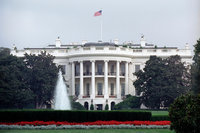Jackson-Vanik amendment: Honey is sweet, but the bees sting
The commercial relations between Russia and the United States are being revised in connection with Russia's imminent accession to the WTO. As an epilogue, the two countries face the need to solve the burning issue of lifting the Jackson-Vanik amendment that has been in effect since 1974. For America, honey is sweet, but the bees still sting.

It would seem at first sight that the United States is prepared to take a step towards the Russian market. Thus, the U.S. Senate Finance Committee voted unanimously on July 19 for the abolition of the Jackson-Vanik amendment. The Budget Committee of the U.S. House of Representatives supported the move last week as well. However, several members of the Congress and trade unions either do not trust Russian businessmen, or do not want to normalize trade relations with Russia simply out of habit. The reasons can be plentiful, but the most interesting question is the "Magnitsky Law" that emerged during the debate. Very unexpectedly, the law wandered into the sphere of economic relations.
As it turns out, Russia's accession to the World Trade Organization raises contradictions in other countries and not only in Russia. The opinions of the general public in the West have split into two fronts. One of them is eager to enter the Russian market and already counts the future profits. The following figures can give a good example. After Russia's accession to the WTO, the U.S. will be able to increase exports to Russian markets from $ 11 billion to 22 billion by 2017. Being inspired with these forecasts, the governors of 14 states addressed the Congress saying that for them, Russia's WTO membership would be very beneficial, and it was about time the US should lift the notorious amendment as an echo of the "Cold War".
However, trade unions chilled the American governors out with completely different statements. According to them, it is too early to establish normal trade relations with Russia, because it would lead to the expansion of Russian companies in U.S. markets. It just so happens that both Western and Russian entrepreneurs fear Russia's membership in the World Trade Organization. Being too afraid of the unknown future, the U.S. decided to make a knight's move, which the country gladly uses in the relations with the Kremlin.
Due to uncertainty of the United States and Russia's hidden fear of foreign entrepreneurs, the question of the normalization of trade routes is hanging in the air. Meanwhile, the U.S. Congress has figured out how to stay on the safe side at the time when Russian business is knocking on the door. It was decided to introduce purely economic amendments to the purely political "Magnitsky Law". They include, for example, a report on the compliance with WTO rules, which a US representative in Moscow would have to provide 90 days after the abolition of the good old Jackson-Vanik amendment.
If during this short period of time Russian businessmen display inappropriate behavior, U.S. companies will have to go to the Congress, and profile committees of both Houses shall require a review of the relevant addresses from U.S. trade representatives within 15 days.
The final vote on the issue of normalization of trade relations with Russia should be held in late August before Congress goes on well-deserved vacation. U.S. President Barack Obama will have to put his signature on the paper too. However, one can already assert that the administration of the head of the United States supports the abolition of the Jackson-Vanik amendment.
Moreover, Barack Obama said with the confident voice of the conqueror that U.S. companies should be the first on the Russian market. He added that the US should start harmonizing its trade relations with Russia already this year. However, the statement was lost in the hectic pre-election campaign in the US. Obama does not hurry to repeat those words otherwise he may have more enemies among those unsatisfied with the Russian presence. If so, the U.S. President will lose the votes of the Democrats, most of whom are registered in trade unions.
Meanwhile, the Russian side, being highly concerned about the sudden surfacing of the "Magnitsky list", which is obviously a part of a completely different story, has to find comfort in the remarks from U.S. Ambassador to Russia Michael McFaul. The latter stated that there was progress reached on the matter. McFaul said that the achievements were "fantastic." According to him, the business communities and the American general public are quite willing to abolish the outdated amendment. However, neither McFaul, nor Congress representatives name a specific date for the final vote. Russia does not suffer from the delay. If the Jackson-Vanik amendment remains in force, the U.S. business will not be able to take full advantage of Russia's WTO membership. The big question is whether that would become a tragedy for the Russian market.
Indeed, even today, despite the current amendment, Russian steelmakers conduct an active foreign expansion. Their power will only grow after Russia's entry to the WTO. U.S. steel industry players raised a panic because of that. They demanded a set of clear rules be created which Russia would observe in its operation in the WTO. In addition, petroleum and petroleum products already make more than 50 percent of Russia's exports to the United States. Russia also exports nuclear fuel, fertilizers, fish, and the Jackson-Vanik amendment is not an obstacle for the exports. Therefore, it is clear that the barriers, which American trade unions are trying to build for the USA's relations with Russia, will be immediately destroyed at the right time.
Maria Snytkova
Pravda.Ru
Subscribe to Pravda.Ru Telegram channel, Facebook, RSS!


